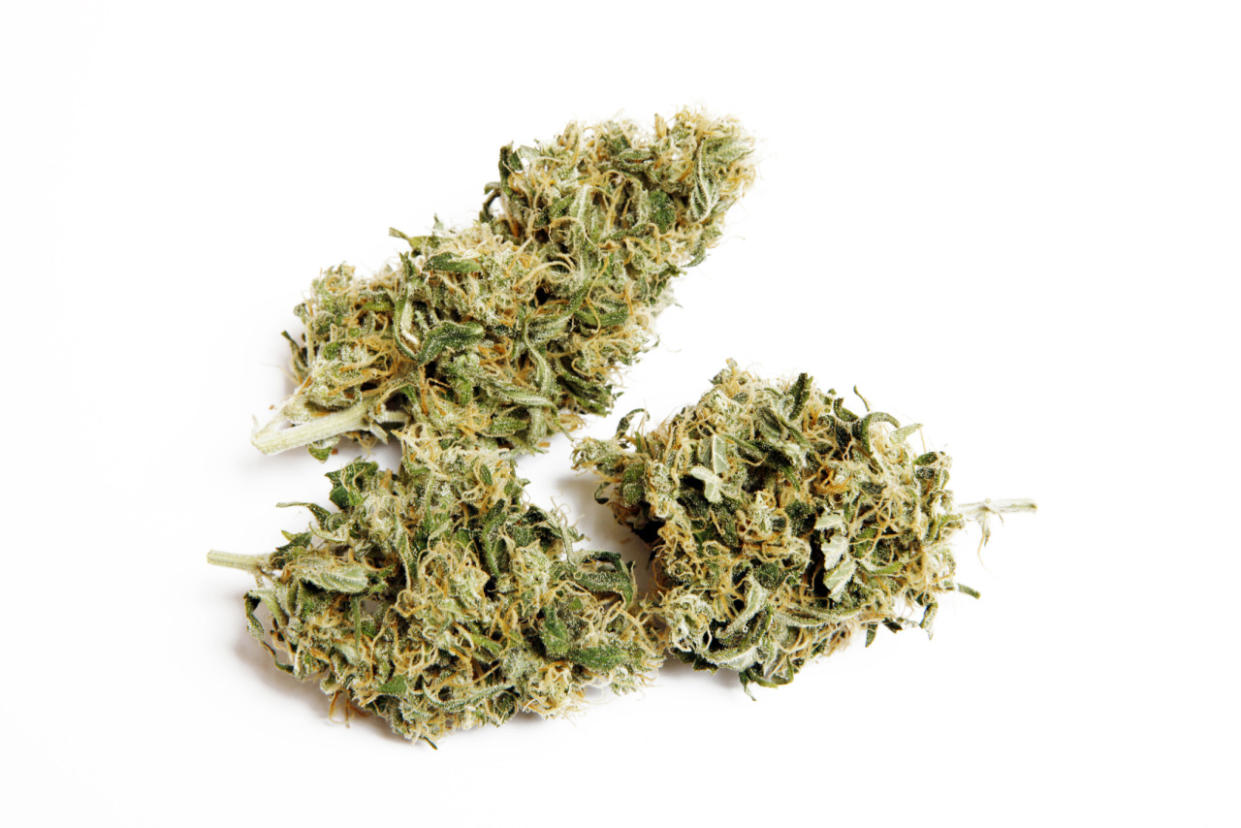New Jersey School Allowing Medical Marijuana for Students

(Photo: Getty Images)
An autistic New Jersey teenager who suffers from potentially life-threatening epileptic seizures will now be allowed to legally consume edible medical marijuana at her school.
The Larc School adopted the policy Wednesday after Gov. Chris Christie this week signed a law allowing it, NJ.com reported. The law now permits 16-year-old Genny Barbour to receive her midday dosage of cannabis oil from a nurse at the special education school in Bellmawr in southern New Jersey.
Barbour’s parents, who unsuccessfully sued on their daughter’s behalf last year, said cannabis oil works better than any traditional pharmaceutical medication to control their daughter’s seizures. Roger Barbour said his daughter will likely begin taking the medication at school Monday. Genny had been attending school in half-day sessions so she could receive her medication on time.
Officials with The Larc School and the Maple Shade School District initially refused to allow the cannabis oil on school grounds because of legal concerns.
“We want the best for Genny. We were not able to do it legally,” said Larc executive director Susan Weiner. “We are pleased we are able to help the family.”
Parents and children registered under New Jersey’s medical marijuana program must provide their identification cards to the school, which will keep copies of each on file. Parents are permitted to administer the medication to their children themselves as long as it is conducted in a private room with a staff member present, Weiner said.
Medical marijuana is currently legal in 23 U.S. states and the District of Columbia. From state to state, marijuana is approved for a variety of conditions, including but not limited to epilepsy, arthritis, nausea, amyotrophic lateral sclerosis (ALS), multiple sclerosis, cancer, glaucoma, Crohn’s disease, chronic pain, and post traumatic stress disorder (PTSD).
While medical marijuana has been shown to provide pain relief for a variety of conditions, there has not been enough research on the subject, reviews have found.
“States recommend use for 20 to 30 conditions when many of those conditions have little or no evidence,” says Kevin P. Hill, MD, MHS, assistant professor of psychiatry at Harvard Medical School and director of the Substance Abuse Consultation Service at McLean Hospital in Belmont, Massachusetts. “There’s a tremendous need for evidence-based guidance on medical marijuana, and I can tell you from speaking both nationally and internationally that physicians and patients alike are clamoring for practical advice,” Hill, the author of Marijuana: The Unbiased Truth about the World’s Most Popular Weed, tells Yahoo Health.
The bottom line, Hill says, is that, “We need to do more of these trials. We need to make it easier to do these trials, and we need to do them so we can see whether or not there is evidence to support the use of medical marijuana for the conditions under which people have voted for it.”
Additional reporting by the Associated Press
Read This Next: Huge New Review Shows What Medical Marijuana May (and May Not) Help

